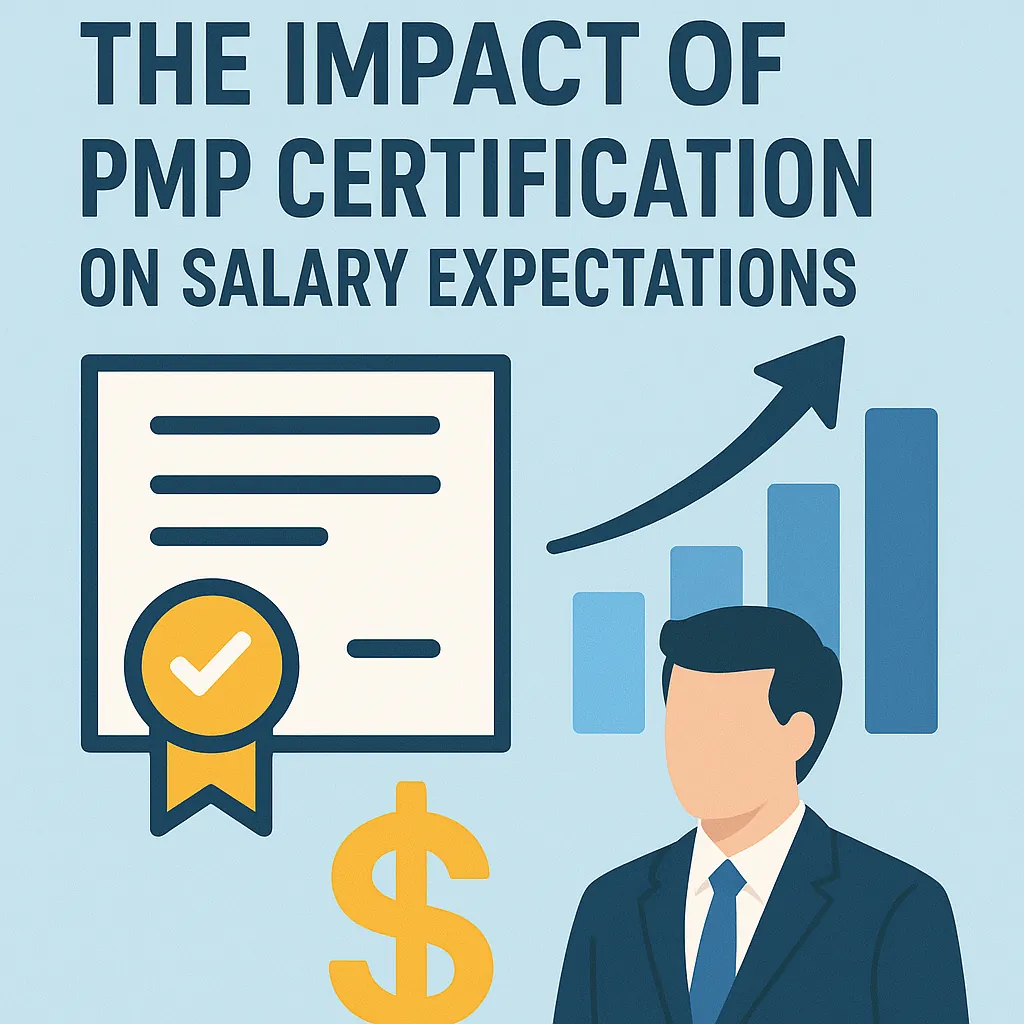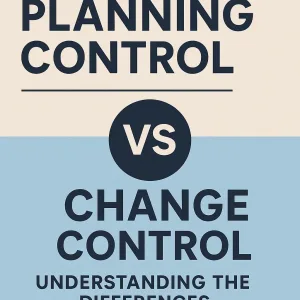Introduction
The Project Management Professional (PMP) certification has emerged as a pivotal credential for professionals seeking to enhance their careers. Administered by the Project Management Institute (PMI), the PMP certification signifies a high level of expertise and commitment to the discipline of project management. It is recognized globally and serves as a benchmark for project management excellence, making it a valuable asset for individuals aiming to distinguish themselves in a competitive job market.
The demand for certified project managers has been steadily increasing, driven by organizations’ need for skilled professionals who can effectively lead projects to successful completion. As businesses continue to recognize the importance of structured project management practices, the role of certified project managers becomes increasingly critical. This trend is reflected in various industries, where the PMP certification is often a prerequisite for higher-level positions and responsibilities.
This blog section will delve into the salary trends associated with PMP certification, providing insights into how obtaining this credential can lead to significant financial growth for professionals in the field. By analyzing current salary data and trends, we aim to illustrate the tangible benefits of pursuing PMP certification, ultimately guiding aspiring project managers in their decision-making process regarding this valuable investment in their careers.
Understanding PMP Certification
The Project Management Professional (PMP) certification is a globally recognized credential offered by the Project Management Institute (PMI). It signifies that an individual possesses the knowledge, skills, and experience necessary to lead and direct projects effectively. Here’s a closer look at what PMP certification entails, the process of obtaining it, and the benefits it offers beyond just salary.
Description of PMP Certification and Its Requirements
What is PMP Certification?
PMP certification is designed for project managers who want to demonstrate their expertise in project management principles and practices. It validates a professional’s ability to manage projects and lead teams effectively, making it a valuable asset in the competitive job market.
Eligibility Requirements:
To qualify for the PMP certification, candidates must meet specific educational and professional experience criteria:
- A four-year degree (bachelor’s or equivalent) and at least 36 months of leading projects, along with 35 hours of project management education.
- Alternatively, candidates with a high school diploma or an associate degree need 60 months of leading projects and the same 35 hours of project management education.
The Process of Obtaining PMP Certification
- Training and Preparation:
Candidates typically engage in formal training programs to prepare for the PMP exam. These programs cover the PMBOK (Project Management Body of Knowledge) Guide, which outlines the standard practices and guidelines in project management. Training can be conducted through various formats, including online courses, workshops, and boot camps. - Exam Details:
The PMP exam consists of 180 multiple-choice questions that assess a candidate’s knowledge and application of project management concepts. Candidates have four hours to complete the exam, which is a rigorous test of their understanding and ability to apply project management principles in real-world scenarios.
Benefits of Being PMP Certified Beyond Salary
- Credibility and Recognition:
Holding a PMP certification enhances a professional’s credibility in the field of project management. It signals to employers and peers that the individual has met rigorous standards and possesses a comprehensive understanding of project management practices. - Career Advancement Opportunities:
PMP certification can open doors to higher-level positions and leadership roles within organizations. Certified project managers are often preferred for promotions and are more likely to be entrusted with complex projects, leading to greater career growth. - Networking Opportunities:
Being part of the PMI community provides access to a vast network of professionals, resources, and events. This network can be invaluable for career development, mentorship, and staying updated on industry trends. - Increased Earning Potential:
While the focus of this section is on the broader benefits, it is worth noting that PMP certification often correlates with higher salary expectations. Certified project managers typically earn more than their non-certified counterparts, reflecting the value that organizations place on this credential.
Salary Trends for Project Managers
The Project Management Professional (PMP) certification is widely recognized in the industry and can significantly influence salary expectations for project managers. Here’s an analysis of current salary trends for project managers, focusing on the impact of PMP certification.
Overview of Average Salaries for Project Managers in Various Industries
Project manager salaries can vary significantly across different industries. On average, project managers earn around $100,000 annually, but this figure can fluctuate based on the sector. For instance:
- Information Technology: Project managers in IT often command higher salaries, with averages reaching up to $120,000 or more due to the technical expertise required.
- Construction: In the construction industry, project managers typically earn between $90,000 and $110,000, depending on the complexity of the projects they oversee.
- Healthcare: Project managers in healthcare can expect salaries ranging from $95,000 to $115,000, reflecting the critical nature of project management in this sector.
- Finance: The finance sector also offers competitive salaries, with project managers earning between $100,000 and $130,000, influenced by the need for compliance and risk management.
Comparison of Salaries Between Certified and Non-Certified Project Managers
The distinction between certified and non-certified project managers is significant when it comes to salary. According to recent data:
- PMP-Certified Professionals: Those holding a PMP certification earn, on average, 20% to 32% more than their non-certified counterparts. For example, PMP-certified project managers have a median annual salary of approximately $120,000, compared to around $100,000 for those without the certification [10][11].
- Salary Growth: The certification not only enhances initial salary prospects but also contributes to long-term career growth. Certified project managers are often considered for higher-level positions and responsibilities, which can lead to further salary increases over time [12].
Regional Variations in Salary Based on PMP Certification
Salary expectations for project managers can also vary by region, influenced by local demand for project management skills and the prevalence of PMP certification. Key observations include:
- Urban vs. Rural Areas: Project managers in urban areas, particularly in tech hubs like San Francisco or New York, tend to earn significantly higher salaries compared to those in rural regions. For instance, salaries for PMP-certified project managers in major cities can exceed $140,000, while those in less populated areas may average around $90,000 [14].
- State Variations: Certain states, such as California and New York, offer higher salaries for project managers due to the cost of living and demand for skilled professionals. In contrast, states with lower living costs may offer salaries that are more modest but still competitive within their local markets [15].
Factors Influencing Salary Growth with PMP Certification
Obtaining a Project Management Professional (PMP) certification can significantly enhance a project manager’s career trajectory, particularly in terms of salary expectations. Here are several key factors that influence salary growth for professionals who have earned this prestigious certification:
1. Impact of Years of Experience on Salary Expectations
- Experience Level: Generally, the more years of experience a project manager has, the higher their salary potential. Entry-level project managers with a PMP certification may see a modest salary increase, while those with several years of experience can command significantly higher salaries. For instance, project managers with 5-10 years of experience often earn salaries that are 20-30% higher than their non-certified peers.
- Career Progression: As project managers gain experience, they often take on more complex projects and leadership roles, which can lead to salary increases. The PMP certification can serve as a catalyst for promotions and raises, particularly in organizations that value formal project management training.
2. Role of Industry and Company Size in Salary Differences
- Industry Variability: Salary expectations can vary widely across different industries. For example, project managers in the technology and finance sectors typically earn higher salaries compared to those in non-profit or education sectors. This disparity is often due to the complexity and financial stakes involved in projects within these industries.
- Company Size: Larger organizations often have more resources and higher budgets for project management roles, which can translate to higher salaries for certified project managers. In contrast, smaller companies may offer lower salaries but could provide other benefits, such as a more flexible work environment or opportunities for rapid advancement.
3. Importance of Additional Skills and Certifications
- Complementary Skills: In addition to PMP certification, possessing additional skills such as Agile methodologies, risk management, or proficiency in project management software can enhance a project manager’s value in the job market. Employers often seek candidates who can bring a diverse skill set to their projects, which can lead to higher salary offers.
- Additional Certifications: Pursuing further certifications, such as Certified ScrumMaster (CSM) or Six Sigma, can also positively impact salary growth. These certifications demonstrate a commitment to professional development and can make candidates more competitive, leading to better compensation packages.
Future Outlook for Certified Project Managers
The Project Management Professional (PMP) certification is widely recognized as a valuable asset for professionals in the field of project management. As industries evolve and the demand for skilled project managers increases, understanding the future outlook for certified professionals is crucial for those considering this certification for financial growth. Here are some key points to consider regarding salary expectations and trends in project management:
Predictions About Demand for PMP Certified Professionals
- Growing Demand: The demand for PMP certified professionals is expected to rise significantly in the coming years. According to industry reports, organizations are increasingly recognizing the value of certified project managers in driving successful project outcomes. This trend is likely to continue as businesses seek to enhance efficiency and effectiveness in project execution [1].
- Industry-Specific Growth: Certain sectors, such as technology, healthcare, and construction, are projected to experience particularly high demand for project managers. As these industries expand and become more complex, the need for certified professionals who can navigate challenges and lead teams will be paramount [1].
Impact of Emerging Technologies and Methodologies
- Technological Advancements: The integration of emerging technologies, such as artificial intelligence (AI), machine learning, and data analytics, is transforming project management roles. Certified project managers who are adept at leveraging these technologies will likely command higher salaries as they bring added value to their organizations [1].
- Agile and Hybrid Methodologies: The shift towards agile and hybrid project management methodologies is reshaping the landscape. Professionals with PMP certification who are also trained in agile practices will be in high demand, as organizations seek to adapt to rapid changes and improve project delivery times. This adaptability can lead to increased salary potential for certified project managers [1].
Importance of Continuous Learning
- Staying Updated: Continuous learning is essential for project managers to remain competitive in the evolving job market. Pursuing additional certifications, attending workshops, and engaging in professional development can enhance a project manager’s skill set and increase their marketability. This commitment to learning can also lead to higher salary expectations as professionals demonstrate their expertise and adaptability [1].
- Networking and Professional Growth: Engaging with professional organizations and networking with other certified project managers can provide valuable insights into industry trends and salary benchmarks. This networking can also open doors to new opportunities and career advancement, further impacting salary growth [1].
Conclusion
Obtaining a Project Management Professional (PMP) certification can significantly enhance salary expectations for project managers. Here are the key takeaways regarding the financial impact of this certification:
- Increased Earning Potential: Numerous studies indicate that PMP-certified professionals tend to earn higher salaries compared to their non-certified counterparts. The certification not only validates a project manager’s skills and knowledge but also positions them as more competitive in the job market, often leading to better job offers and promotions.
- Market Demand: The demand for certified project managers continues to grow across various industries. Organizations recognize the value that PMP certification brings, which often translates into higher compensation packages for those who hold it. This trend suggests that investing in PMP certification can yield substantial returns in terms of salary increases.
- Long-Term Career Growth: Beyond immediate salary benefits, PMP certification can open doors to advanced roles and responsibilities within project management. As professionals climb the career ladder, the financial rewards typically increase, making the initial investment in certification worthwhile.
As you consider the potential financial growth associated with PMP certification, it is essential to weigh the costs of obtaining the certification against the expected salary increases. The investment in your professional development can lead to significant long-term benefits, both in terms of salary and career advancement.
In conclusion, pursuing PMP certification is a strategic move for professionals looking to enhance their career trajectory and financial prospects. By taking this step, you position yourself for greater opportunities and increased earning potential in the dynamic field of project management. Embrace the challenge and invest in your future—your career will thank you for it.
Find out more about Shaun Stoltz https://www.shaunstoltz.com/about/.
This post was written by an AI and reviewed/edited by a human.



